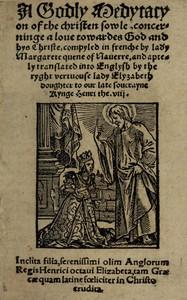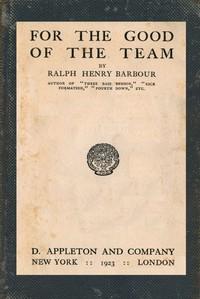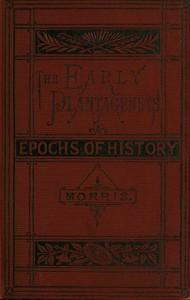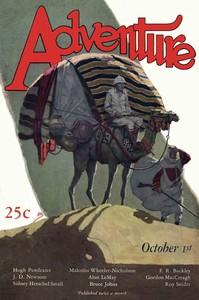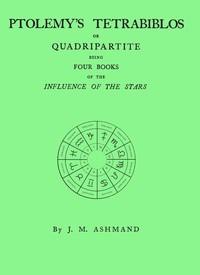|
|
Read this ebook for free! No credit card needed, absolutely nothing to pay.Words: 21420 in 10 pages
This is an ebook sharing website. You can read the uploaded ebooks for free here. No credit cards needed, nothing to pay. If you want to own a digital copy of the ebook, or want to read offline with your favorite ebook-reader, then you can choose to buy and download the ebook.

: A godly medytacyon of the christen sowle concerninge a loue towardes God and hys Christe by Marguerite Queen Consort Of Henry II King Of Navarre Bale John Editor Elizabeth I Queen Of England Translator - Devotional literature; Meditations Early works to 18@FreeBooksThu 08 Jun, 2023 Translator: Elizabeth Tudor Transcriber's Note: Biblical references in the sidenotes are not always possible to make out, due to the quality of the print. Where this is the case it has been noted with or , as appropriate. A Godly Medytacyon of the christen sowle, concerninge a loue towardes God and hys Christe, compyled in frenche by lady Margarete quene of Nauerre, and aptely translated into Englysh by the ryght vertuouse lady Elyzabeth doughter to our late souerayne Kynge Henri the .viij. Inclita filia, serenissimi olim Anglorum Regis Henrici octaui Elizabeta, tam Graecae quam latine foeliciter in Christo erudita. To the ryght vertuouse and christenly lerned yonge lady Elizabeth, the noble doughter of our late souerayne Kynge Henry the .viij. Iohan Bale wysheth helth with dayly increace of Godly knowledge. Diuerse and many haue the opynyons bene amonge the prophane philosophers and christen dyuynes, concernynge ryght Nobylyte, and no fewar stryues and contencyons for the same. Some autours haue vaynely boasted it to take orygynall of the olde Goddes of the Gentyles, as euery l?de hath had hys peculyar Saturne, Iupiter, & Hercules, yea our Engl?de here and all. Some hath fatt it from the foure generall monarchyes of the Assyrianes, Perseanes, Grekes, and Romanes. Some haue attrybuted it, to the bolde battayles and bloudshedynges, in Ninus of Babylon the first inu?tour of polycyes in warre, in our great Albion the Chamesene, whych first in thys regyon suppressed the posterite of Iaphet, vsurpynge therin the first monarchy, in Brute that more than six hondred yeares after defaced of hym the tyrannouse yssue, in Ebr?ck and Dunwallo, in Brenne and Belyne, in great Constantyne, Artoure, Cadwalader, Engist, Egbert, Alphrede wyllyam c?querour & soch other, for lyke c?questes of the Romanes, Grekes, Galles, pyctes, Brytaynes, Saxons, Danes, Iryshens and Englyshens. The hawty Romanes set not yet a lyttle by themselues, that they haue rys? of Aeneas & Romulus, of whom the one most shamefully betrayed hys owne natyue kyndred and contraye, and the other most vnnaturally slewe hys owne brother for worldly domyny?. Lyke as our walshemen here in Englande, adua?cynge their successyon or progeny aboue the Englysh wyll nedes come of Sardanus & Bute, a fo?dacy? not all vnlyke to the other. These gloryouse champyons for thys farre fatched gro?de of their Nobylyte, acco?te all other nacyons and peoples, ignoble, profane, and barbarouse, as is to be seane in the monum?tes of their writers. But in the meaneseason, they are not aware that they wndyscretely prefarre cursed Cham to blessed Iaphet, by whose posteryte the Iles of the Gentyles were first sorted out in to speches, kyndredes, and nacyons, Gene. 10. and not by Chams ofsprynge, of whome the Troianes and Romanes had their noble begynnynge. That the Chamesenes had in those Iles, was by cruell vsurpacyon & tyr?ny, as testyfyeth Berosus the Caldeane and therfor that gro?de of Nobylyte is not all the best. Ouer and besydes all thys, some haue applyed it to renomed byrth or successyon of bloude, some to the hab?da?ce of pleasures worldly some to the mayntena?ce of great famylyes, some to the s?ptuousnesse of notable buyldynges, some to the hygh stomake & stature of persone, some to valea?tnesse in marcyall feates, some to semely maners of courtesye, some to lyberalyte of rewardes and gyftes, some to the auncyentnesse of longe co?tynuaunce, some to wysdome lernynge & stody for a c?m?welth with soch lyke. And these are not all to be dysalowed, for we fynde them in Abraham, & Dauid with other iust fathers. But now foloweth, a monstruouse, or whether ye wyll, a prestygyouse nobylyte. The Romysh clergye ymagenynge to exalte themselues aboue the lewde layte haue geuen it in a farre other kynde, to mytars, masses, Cardynall hattes, crosers, cappes, shauen crownes, oyled thombes, syde gownes, furred amyses, m?kes cowles, and fryres lowsy coates, bec?mynge therby p?tyfycall lordes, spirytuall sirs, and ghostly fathers. Thys kynde of Nobylyte dygged out of the dongehyll, haue I seane gorgyously garnyshed with the retoryckes of Porphyry, Aristotle, Duns, and Raymundus decretals, in the bokes of Iohan Stanbery byshopp of herforde, De superioritate ecclesiastica, De discrimine iurisdictionum, and De potestate p?tificia. In the bokes also of Walter h?te an ordynary reader s?tyme in Oxforde, De precell?tia Petri, & De autoritate ecclesie. Yea, and am?ge th?selues they haue moch contended both by disputacyon & writynges, whych of their seeres myght other excell in the nobylnesse of christen perfection. The monkes in publyque scoles, by a dystynccyon of the actyue and contemplatyue lyfe, haue aduaunced their ydell m?kery aboue the offyce of a byshopp, and the fryres their scalde crauynge beggery, aboue the degrees of th? Both. As is largely seane in the brawlynge workes of Rycharde Maydeston, Thomas walden, Wyllyam Byntre & other whych haue written Contra wicleuistas, & Pro m?dicatione fratr?. In the dayes of kynge Edwarde the fourt, Iohan Myluerton prouyncyall of the Carmelytes, was full thre yeares, a prysoner in the castell of Angell at Rome at the sute of the byshoppes of Englande for the same, and lost so the byshopryck of saynt Dauids, wherunto he was a lyttle afore elected. Thys matter haue I hearde, vndre the tyttle of Euangelyck perfeccyon, most depely reasoned in their ordynary dysputacions at their concourses c?uocacyons, and chapters yea by those whome I knewe most corrupt lyuers, Ber?to for fournyshynge out the same, the graye fryres added. S. frances paynted wo?des, the blacke fryres. S. Domynyckes bolde dysputynge with heretykes, the whyte fryres our ladyes fraternyte, and the Augustyne fryres the great doctryne of their patrone. In the vnyuersytees afte moch to and fro, hath it bene concluded, that the order of a prest haue farre excelled in dygnyte the order of a byshopp. And thys haue they left behynde them for a most graue and depe reason therupon. Marke their more than lucyferyne presumpcyon therin. Soch power hath a prest as hath neyther Angell nor yet Man, be he of neuer so great autoryte, scy?ce, or vertu. For a prest by worde maye make hym agayne, that by worde made heauen & earth. A prest maye euery daye both byget hym and beare hym, where as hys mother Marye bygate hym but ones. These are their very wordes in a boke entytled, De origine Nobilitatis. ca. 5. with moch more cyrcumstaunce of matter. O blasphemouse bellybeastes, & most ydell wytted sorcerers. How ydolatrously exalte they themselues aboue the eternall lyuynge God & hys Christ? A most worthy conquerour is Gedeon noted in the scriptures, for destroyenge false relygy? & renuynge the kyngedome of faythe. Iudi. vj. So is kynge Asa, for remouynge the male stues from the prelates abhorrynge marryage, & for puttynge downe ydolles whych hys forefathers maynteyned. 3. Reg. 15. So is kynge Iosaphat, for beynge couragyouse in the wayes of God, and for puttynge downe the hyll aulters & their sacrifices. 2. parali 17. So is kynge Iehu, for sleynge the ydolatrouse Prestes, and for breakynge and burnynge their great God Baal, and for makynge, a Iakes of their holy churche 4. Reg. 10. So is kynge Ezechias for cl?synge the house of the lorde from all fylthynesse, afore hys tyme therin occupyed. 2. Parali. 29. and for breakynge downe the brasen serpent and ydolatrouse ymages with their aulters and sanctuaryes. 4. Reg. 18. So is kynge Iosias, for suppressynge relygyouse persones and aulter prestes, for c?sumynge their iewels & ornam?tes, & for ouerthrowynge their buggery chambers in the howse of the lorde 4. Reg. 23. Thys noble k?ge also destroyed all theyr carued ymages, he strewed the dust of th? vpon their graues that had offered to them, and brent the prestes bones vp? their aulters, restorynge agayne the lawes of the lorde. 2. parali. 34. Iesus Syrach reporteth of hym fynally, that he whollye dyrected hys hart to the lorde, & toke awaye all abhomynacyons of the vngodly. Eccle. 49. Besydes that is spoken of kynge Dauid and kynge Salomon. Not I only, but many thousandes more whych wyll not from hens fourth bowe any more to Baal, are in full & perfyght hope, that all these most hyghly notable and pryncely actes, wyll reuyue & lyuely florysh in your most noble and worthy brother kynge Edwarde the sixt. Most excellent & godly are hys begynnynges reported of the very foren nacy?s callynge hym for hys vertuouse, lerned, and godly prudent youthes sake, the seconde Iosias. Those hys wonderfull pryncyples in the eyes of the worlde, and no lesse gloryouse afore God thus beynge to hys honoure, that eternall lyuynge God contynue and prospere to the ende, that he maye haue of them as had these vorthy kinges afore rehearced, a ryght noble and famouse report. Nobylyte sought by wycked enterpryses and obtayned by the same is not els but a publyque and notable infamye, and in the ende eternall d?pnacyon. Nobylyte wonne by the ernest sekynge of Gods hygh honour, is soch a precyouse crowne of glory as wyll neuer perysh here nor yet in the worlde to come. Your latter clause in the Greke, incyteth vs to the ryght worshyppynges of God in sprete and veryte Io?. 4. to honouringe of our par?tes in the semely offyces of naturall chyldren. Ephe. vj. and to the reuerent vsynge of our christen equalles in the due mynystracyons of loue. 1. Pet. Free books android app tbrJar TBR JAR Read Free books online gutenberg More posts by @FreeBooks
: For the good of the team by Barbour Ralph Henry - Football Juvenile fiction; Teenage boys Juvenile fiction; Boarding schools Juvenile fiction; Connecticut Juvenile fiction; Football stories@FreeBooksThu 08 Jun, 2023
|
Terms of Use Stock Market News! © gutenberg.org.in2025 All Rights reserved.

